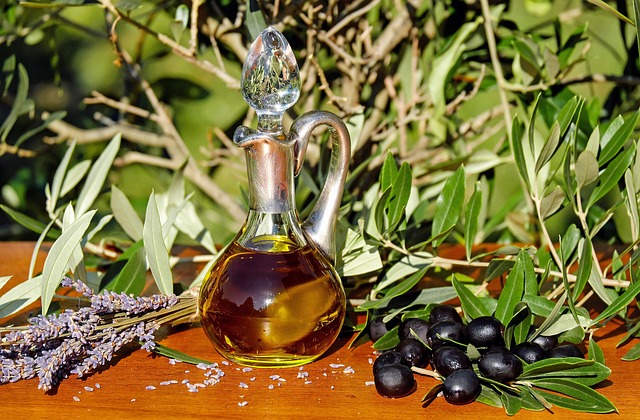Butter is a staple in many households and has been for generations. It has many diverse uses and is typically used as a bread spread, as well as for baking and cooking. Many of your grandma’s favorite recipes more than likely require a fair dose of butter. However, new research has revealed some concerning information regarding the use of butter and cancer risk. Considering that it is such a common ingredient in many meals, it may be impacting our health much more than we thought.
The Link Between Butter and Cancer Risk

A new study that analyzed the data of more than 200,000 adults found that consistent butter consumption was linked to an increase in cancer deaths. The authors of the study have suggested that premature deaths could potentially be prevented by opting for plant-based oils instead. According to the study’s authors, “It is well established that substituting saturated fatty acids with unsaturated fatty acids and eliminating trans fatty acids confers substantial health benefits, particularly in the prevention of cardiovascular disease.” The problem is that the majority of fatty acid sources contain a mix of different fats. When it comes to their dietary choices, people typically don’t think in terms of individual fatty acids, but rather whole foods.
Previous Studies on Oil Consumption

Several previous studies have noted that plant-based diets that contain lower saturated fats, sugars, and aren’t overly processed are linked to improved health outcomes. Butter is full of saturated fats and has long been associated with an increased cardiovascular disease risk. The aim of this particular study was to compare the impact of butter consumption on health with plant-based oils. All of the participants were completely free of neurodegenerative disease, diabetes, cancer, and cardiovascular disease when the study began. The participants then had to fill out questionnaires every four years to evaluate their dietary intake.
Results of the Study

The primary outcome was total mortality, and the secondary outcomes were cancer or cardiovascular disease. The researchers used a statistical method called Cox proportional hazards models to work out the risk of death. They also took into account the other factors that could potentially affect the results of the study. This included their BMI, age, smoking habits, calorie intake, and amount of exercise they got. To further ensure accuracy, they used an average of people’s diets over time instead of just one-time reports. Furthermore, they used certain models to see what would happen if an individuals substituted the use of butter for plant-based oils.
Read More: ‘Butter’ Made from CO2 Could On Our Grocery Store Shelves in The Not Too Distant Future
Comparison To Similar Studies

After a follow-up period of 33 years, 50,932 of the study’s participants had passed away. This included 11,240 people from cardiovascular disease, and 12,241 people from cancer. The participants who consumed the most butter had a 15% higher total mortality risk compared to the participants with the lowest intake. The plant-based oils most associated with a reduced mortality risk included olive, soybean, and canola oils. Mortality risk decreased by 6% for soybean oil, 8% for olive oil, and 15% for canola oil for every 5g increase. However, an increase in oil intake showed no significant reduction in mortality risk.
Butter and Cancer Risk Increase

In addition to total mortality risk, higher butter consumption correlated with a heightened risk of cancer mortality. For every 1o gram increase of butter, the risk of dying from cancer went up by 12%. However, the same quantity increase in plant-oil consumption was associated with an 11% reduction in cancer mortality risk. Additionally, for every 10-gram increase in plant-based oil consumption, there was a correlated 6% reduction in cardiovascular disease mortality risk.
Read More: Are you Storing Butter the Right Way?
Building On Previous Research

Speaking to Medscape Medical News, the study’s author said, “Our findings are largely in line with previous evidence linking saturated fats with adverse health outcomes and unsaturated fats with improved lipid profiles and lower inflammation.” Their new study improves on earlier research by looking at people’s diets multiple times over a long period. This approach reduces changes that could occur by accident and provides a more realistic picture of how people actually eat in real life.
Limitations of the Study On Butter and Cancer Risk

The were certain limitations to the study, and critics noted that the findings may not apply to the general population at large. This is because the participants of the database they analyzed were mostly white healthcare professionals. Therefore, they don’t represent a very large percentage of the general population. They may have very different disease risks, financial situations, and dietary habits from other diverse populations. They also noted that while the study looked at mortality, the researchers often conflated death risk with disease risk. However, most are in agreement that swapping out butter in favor of plant-based oils is the healthier option.
Read More: Butter Nutrition 101: Is Butter Bad for You or Is Butter Good for You?
The Bottom Line

While butter is still a popular staple in kitchens around the world, this long-term study reveals that it may provide hidden risks to health. Replacing butter with plant-based oils such as olive, canola, or soybean may reduce the chance of dying from cancer and cardiovascular disease. Although the findings are not universally applicable due to study limitations, they contribute to a growing body of studies supporting healthy fat choices. In short, simple dietary changes can lead to significant long-term health advantages.
Read More: Seed Oils vs. Animal Fats & Butter: Which Is the Healthier Choice?

